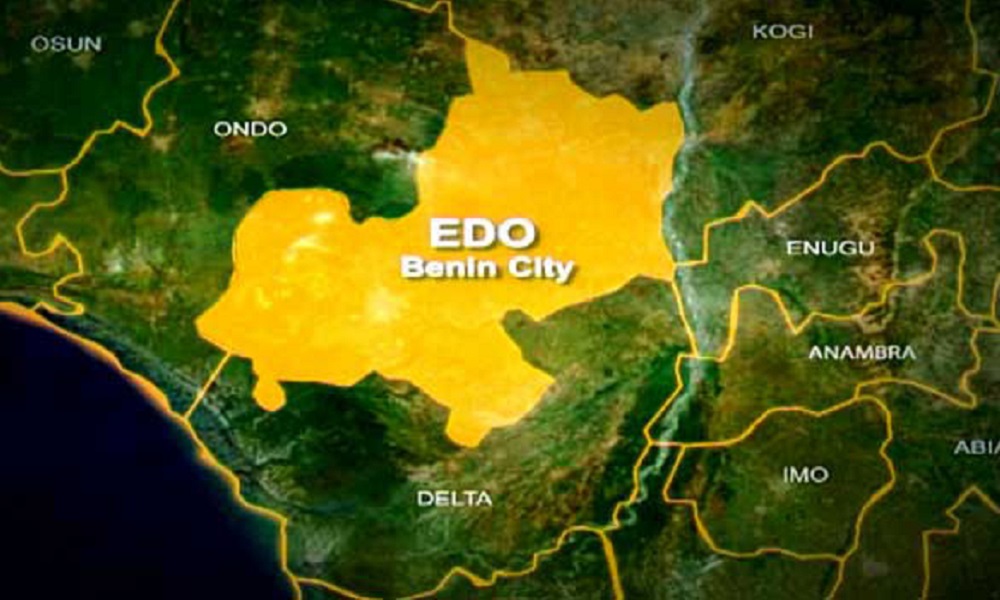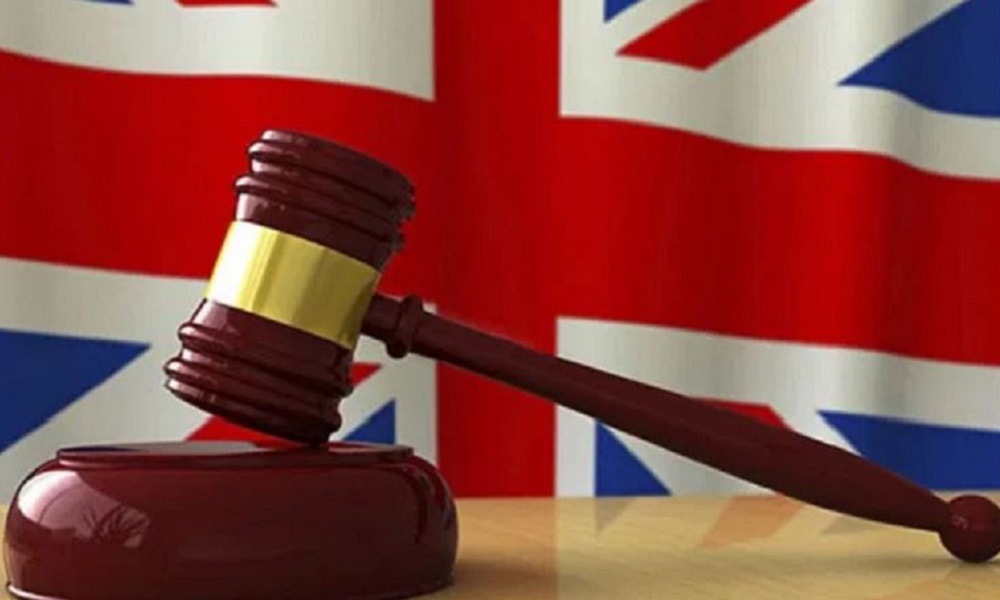News
FG Orders MTN, GLO, Airtel, Others To Block SIMs Without NIN By Feb 28

The Nigerian Communications Commission (NCC) has reiterated its directive to telecom operators to bar telephone subscribers not linked to their National Identification Numbers (NIN) on or before February 28, 2024.
The Executive Vice Chairman of NCC, Dr Aminu Maida, spoke at the NCC’s Special Day at the 45th Kaduna International Trade Fair on Wednesday, February 28.
Maida, who was represented by Reuben Mouka, NCC’s Director of Public Affairs, noted that as a matter of critical national security, telecom consumers must link their NIN to their SIM.
He reaffirmed that the February 28th deadline given to telecom operators to bar subscribers who failed to link their NIN to SIM, stands.
Mouka said: “To this end, the National Communication Commission has directed all telecommunication operators to bar phone lines of subscribers whose lines are not linked to their NINs on or before February 28, 2024.
“As a regulator of the telecommunications sector in the country, the Commission carries out its functions to ensure service availability, affordability, and sustainability for all categories of consumers, who are leveraging ICT/Telecoms to drive personal and business activities.
“Conversely, as we promote economic growth through the development of local content, we must also address the challenges faced by consumers and NCC is committed to protecting their rights while ensuring their satisfaction.”
The NCC boss, therefore, urged telecom firms to prioritize customer satisfaction and uphold the highest standards of service delivery, noting that the commission has implemented measures to safeguard the interests of consumers and businesses alike.
One such measure, he said, was the NCC’s directive on May 17, 2023, that all licensed Mobile Network Operators commence implementation of approved Harmonised Short Codes for providing services to Nigerian telecom consumers.
He added: “The new initiative is enabling consumers using the over 224 million active mobile telephone lines in Nigeria to use the same codes to access services across all networks.”
News
SAD! Woman, child electrocuted in Edo

A 32-year-old woman has been reportedly electrocuted by a cable belonging to the Benin Electricity Distribution Company (BEDC).
The woman and her baby were said to be electrocuted to death by a cable beneath a flooded road she was walking on after a heavy downpour.
The incident was said to have occurred on May 7th, 2025 at the Oregbeni area of Benin City, Edo State capital.
The woman, identified as Sarah David, was said to have had her baby strapped on her back when the tragedy occurred.
The cable was said to have fallen from one of the electricity poles in the neighborhood.
An eyewitness who simply identified herself as Edugie said: “the woman was also walking with a toddler believed to be her eldest child when the tragedy struck.
But for a passer-by who quickly rescued the toddler from the water, the entire family would have been wiped out.
“But for a passer-by who quickly rescued the toddler from the water, the entire family would have been wiped out.
“After the incident, some residents in the area called on the authorities of the Benin Electricity Distribution company (BEDC) to interrupt electricity supply to the area after which the corpses were removed from the flooded area.
The incident occurred on May 7th, 2025 at the Oregbeni axis of the Benin-Agbor Road,” the witness stated.
The husband of the deceased woman, Mr Samuel Ibom David bemoaned the death of his wife and baby.
He appealed to members of the public to assist him with funds to pay his late wife bride price and enable him approach her family for proper burial.
The management of Benin Disco were yet to respond to the tragedy at the time of filing this report on Sunday evening.
News
10th House extraordinarily proactive, productive for two years – Speaker Abbas

The Speaker of the House of Representatives Hon. Abbas Tajudeen, has said the 10th House has been proactive and productive since its inauguration almost two years ago.
Speaker Abbas also noted that the Legislative Agenda of the 10th, with far-reaching and ambitious proposals and targets, has produced results.
The Speaker made this known in Abuja on Monday at the inaugural Policy Dialogue on the Legislative Agenda of the House, which had top government officials and organisations at the federal and state levels in attendance. The private sector and the diplomatic corps were also represented.
The event was organised by the Office of the Speaker in conjunction with the Policy and Legal Advocacy Centre (PLAC); the National Assembly Library Trust Fund (NALTF), and the UK International Development.
Speaker Abbas said: “Two years later, I am proud to report that these efforts have yielded results. In terms of legislative output, this House has been extraordinarily proactive and productive. We have introduced a record number of bills and a volume of legislative proposals that is unprecedented at this stage of any assembly.
“More important than quantity, however, is the impact: these bills and motions are geared towards the critical reforms our country urgently needs. Already, many of the significant bills that we passed have received presidential assent.”
The Speaker said the dialogue is “a clear demonstration of our shared effort to promote parliamentary accountability, transparency, and a truly citizen-driven legislature.”
While recalling how the 10th pledged to regularly engage with Nigerians, report on its performance, and adjust its course based on the people’s feedback, the Speaker noted that the dialogue is part of that promise, “serving as a precursor to the upcoming Open NASS Week, where we open our doors to scrutiny and present our midterm progress.”
Speaker Abbas emphasised that the goal of the event is not only to celebrate the House’s achievements but also to candidly examine areas for improvement in the spirit of openness and democratic inclusion. He said that as the House prepares to mark the midpoint of its tenure, it is significant to reflect on its journey so far.
He said: “When the 10th House was inaugurated in June 2023, Nigeria faced significant challenges. The economy was weak, and there were pressing development and security crises. The populace was understandably frustrated and lost hope in democracy’s ability to meet their aspirations. This was followed by the shock of the removal of fuel subsidies, which exacerbated economic hardships and increased public anxiety. We recognised that extraordinary times required an extraordinary response from the legislature.
“Therefore, from the onset, the House dedicated itself to creating and implementing the most ambitious legislative agenda in our history. Designed to deliver good governance, this agenda aims to restore hope in democracy for our people.”
Speaker Abbas pointed out that the Legislative Agenda was not crafted in isolation but a product of extensive consultations with key stakeholders, including ministries and agencies, civil society, and development partners. He recalled how the House produced a comprehensive roadmap to guide its law-making, oversight, and representation from 2023 to 2027.
The Speaker stressed that the House took special care to align its priorities with the ‘Renewed Hope Agenda’ of the President Bola Ahmed Tinubu-led administration, ensuring synergy between the legislative and executive arms of government.
“Thus, our agenda embodies collaborative governance by engaging in dialogue with the Executive. This approach allows us to fulfil our independent mandate while ensuring that our legislative actions support national objectives and address the pressing needs of our citizens,” he stated.
Speaker Abbas explained that the agenda encompasses eight broad priority areas that address Nigeria’s diverse needs. These include strengthening good governance, enhancing national security, revitalising the economy, reforming our laws, and promoting social development. It also advocates for inclusion through an open parliament, directs foreign policy in the national interest, and tackles climate and environmental sustainability.
He said: “Never has a House of Representatives set such an expansive and forward-looking legislative blueprint. The impact the 10th House has made thus far is largely due to the deliberate, strategic, and focused execution of this agenda. We have remained focused and resilient in pursuing these goals, even when unforeseen issues arose.
“We backed our plan with concrete implementation strategies. Each House committee integrated the agenda into its work plans; we established clear milestones and key performance indicators to track progress, and we set up special committees to monitor and evaluate how well we are meeting our targets.
“We also insisted on better communication and regular reporting, which included requiring members to maintain functional constituency offices and report on their engagement with the public, ensuring accountability at every step.”
He added: “Crucially, our agenda was designed with the flexibility to respond to emerging crises. This means that even as new challenges have arisen, we have adapted swiftly without losing sight of our long-term goals. In short, we did not simply announce an ambitious agenda and hope for the best; we put in place the mechanisms and political will to implement it.”
When it comes to representation, Speaker Abbas stated that the members have endeavoured to make the 10th House “a citizen-driven legislature in practice, not just in words.” He said: “In every major endeavour, we have actively sought the people’s voice.”
News
UK unions slam Govt’s decision to end care worker visas

Labour unions and stakeholders in the United Kingdom’s care sector have come out strongly against the government’s move to stop the recruitment of foreign care workers, describing it as a reckless policy that could cripple the already struggling industry.
According to The Guardian UK, the UK government is set to publish a new immigration white paper on Monday, which includes plans to ban the recruitment of care workers from abroad.
This move is part of broader efforts by the government to cut down on legal migration and shift focus to local labour.
The announcement has drawn sharp criticism from unions and industry leaders, who argue that the care sector — already battling manpower shortages and funding challenges — heavily depends on foreign workers to function.
Reacting to the development, Professor Martin Green, CEO of Care England, lamented that the government’s decision amounts to “kicking the sector while it’s already down.”
For years now, we’ve been surviving on limited resources, rising operational costs, and serious staffing gaps,” Green said. “International recruitment may not have solved all the problems, but it provided a much-needed lifeline.
Taking that away now without offering any support or alternative is simply heartless.”
The UK’s largest trade union, Unison, also condemned the policy and demanded immediate clarification on the fate of foreign care workers already in the country.
Unison General Secretary, Christina McAnea, noted that the UK’s healthcare and social care systems would have collapsed without the input of migrant workers.
“Thousands of migrant health and care workers have kept things running. Now, they are left confused and anxious about their future. The government needs to assure them they’ll not be kicked out,” she stated.
McAnea also criticised the government for tagging care roles as “low-skilled”, insisting that the sector deserves better pay and recognition.
Figures show that in 2023 alone, over 58,000 foreign care workers entered the UK through the skilled worker visa route — accounting for nearly half of new entrants into the care workforce.
Meanwhile, the Labour government has defended the decision, describing it as part of a reset of the immigration system designed to reduce dependency on foreign labour and invest in British workers.
Home Secretary Yvette Cooper, speaking during a BBC interview, insisted that there are still untapped pools of labour within the UK.
“Employers should be looking to hire from those already in the UK, including people on existing visas who are yet to be deployed,” she said. “There’s also room to extend some visas, but we believe it’s time to draw the curtain on recruiting new care workers from abroad.”
The policy continues to stir debate across the UK, with fears that it could worsen the staffing crisis in the care sector and increase pressure on families already struggling to access quality care services.
-

 News18 hours ago
News18 hours agoWho Is Usoro Akpabio? Tinubu’s New MD for South-South Development Commission
-

 News11 hours ago
News11 hours agoJust in: Wike admits Fubara alongside 2 govs visited him on reconciliatory moves
-

 Politics19 hours ago
Politics19 hours agoJust in: PDP leaders plan to grab power as govs, ex-govs meet
-

 Politics19 hours ago
Politics19 hours agoWatch moment Wike arrives for PDP meeting (Video)
-

 News14 hours ago
News14 hours agoRivers crisis: Wike’s aide mocks Fubara, advises him to honourably quit since his spirit has left Brick House
-

 News19 hours ago
News19 hours agoTrue confession: “I’m not keen to return to office my spirit has left Brick House-Fubara
-

 Economy13 hours ago
Economy13 hours agoSEE Black Market Dollar (USD) To Naira (NGN) Exchange Rate Today 12th May 2025
-

 News8 hours ago
News8 hours agoGo home to face corruption probe, protesters in London tell Kyari (Photos)






